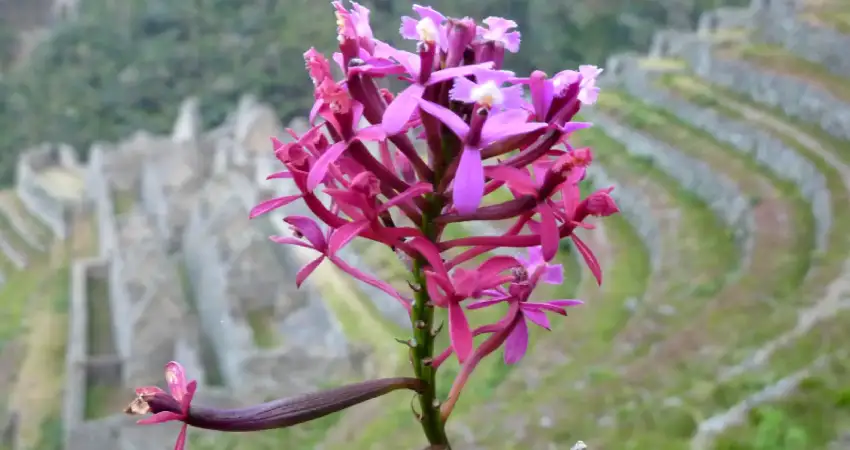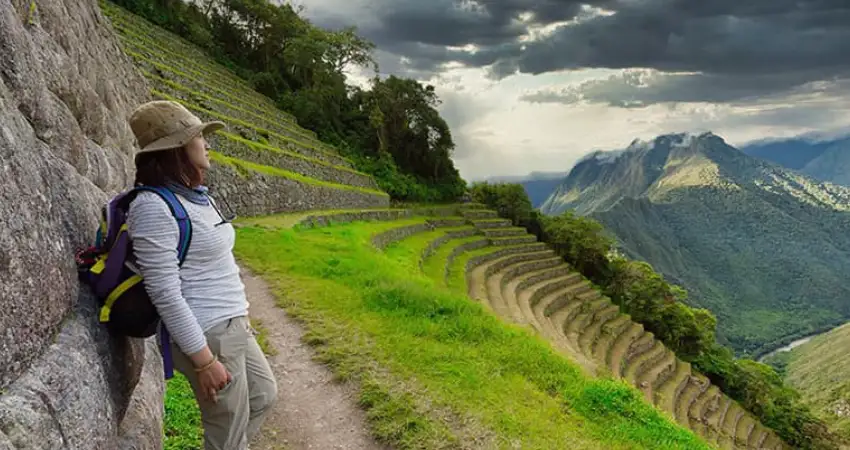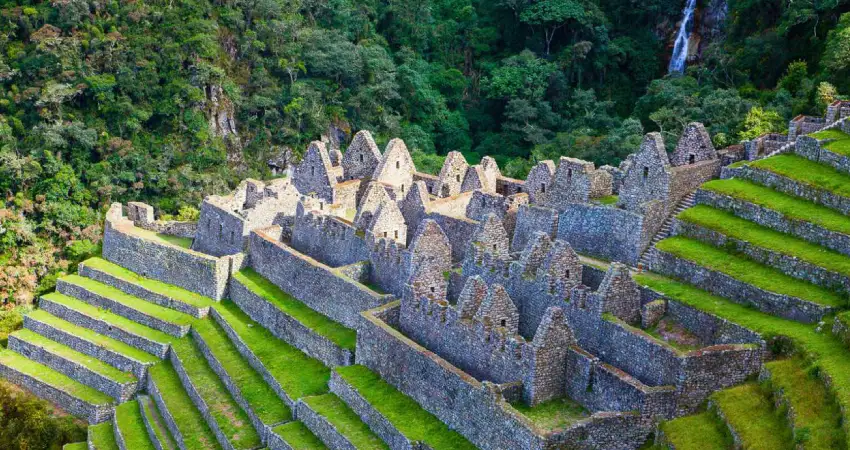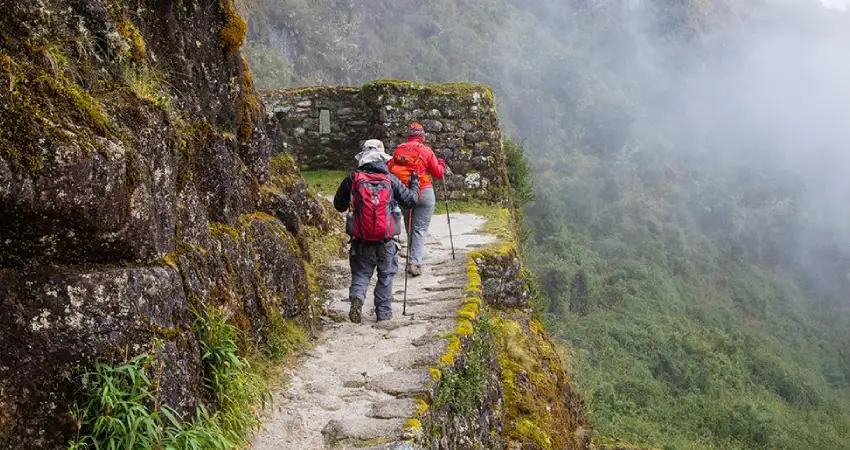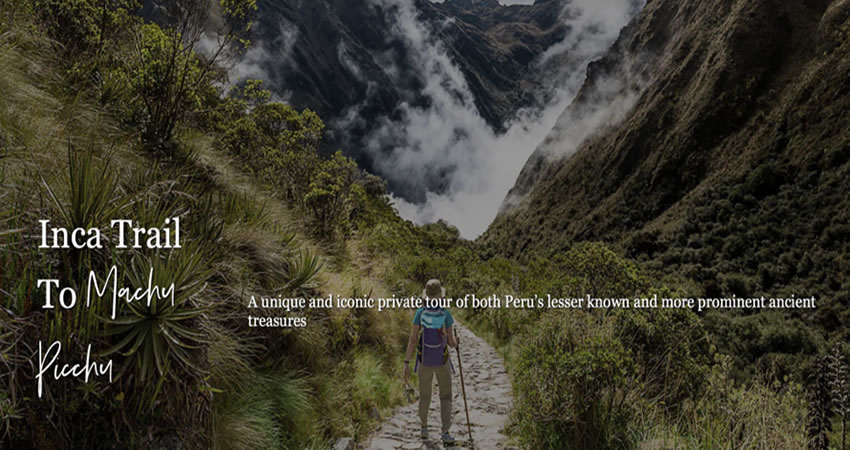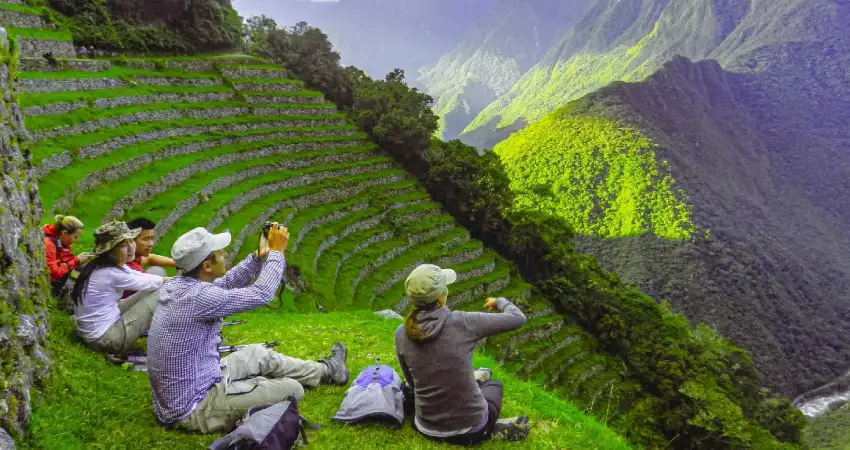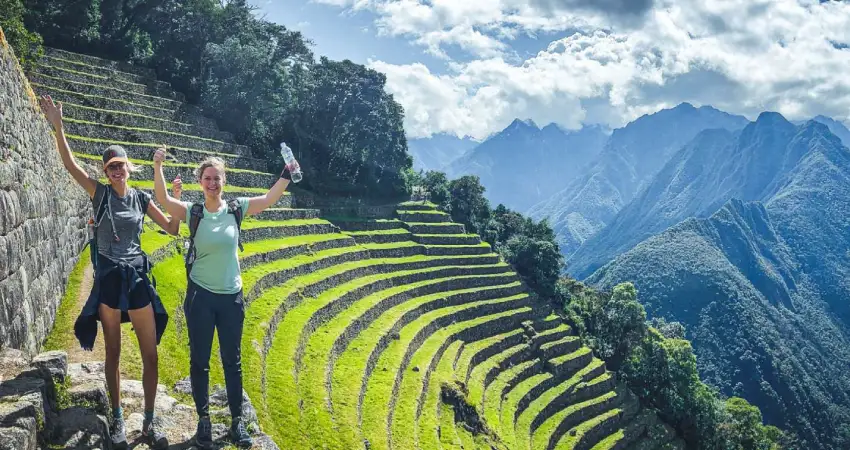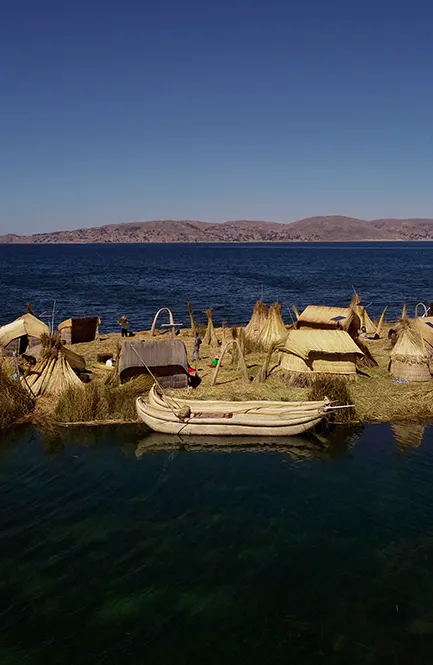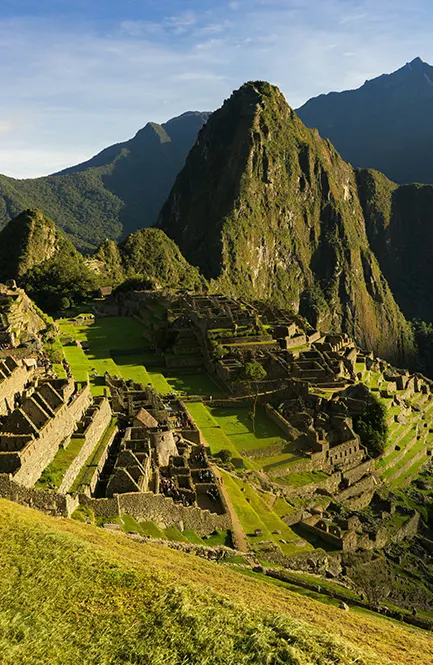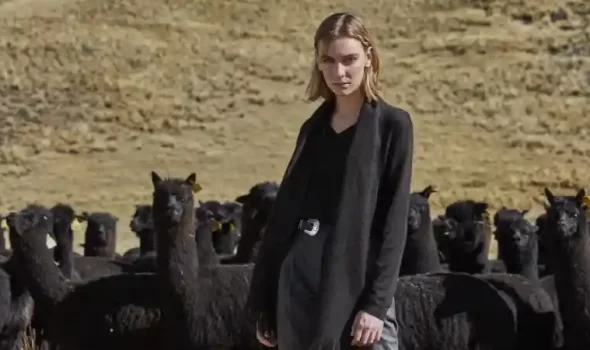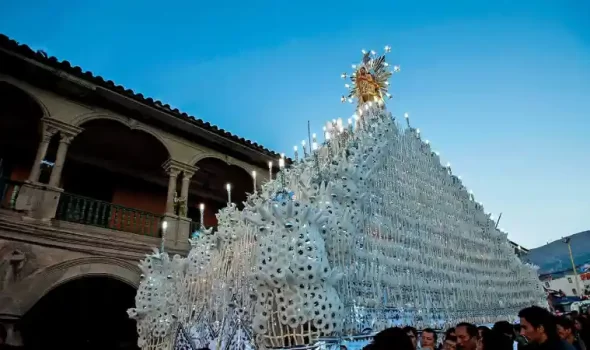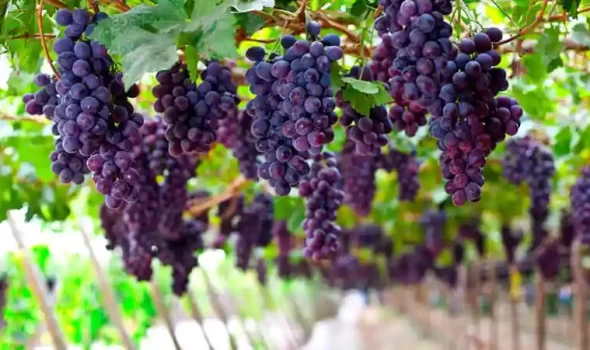1.- INTRODUCTION
It is natural that you have the doubt about what makes Wiñay Wayna Inca Trail so special. To begin with it is one of the most important archaeological centers within the Inca Trail, its name is a word from the Quechua language which was the official dialect of the Inca culture, translated into our dialect means “always young”, with an altitude of 2700 m above sea level this archaeological center has an urban area where the remains of houses and storage centers are also noted for the incredible amount of terraces throughout its territory which suggests that it was an agricultural center that provided food to the Inca citadel of Machu Picchu.
It is considered that the person responsible for the construction of Wiñay Wayna Inca Trail was the ruler Pachacutec who was also given the name of the reformer of the land because he established much of the buildings we know today, the name was also given by an orchid that can be easily found in the place.
Although it is not really known what was its main purpose within the Inca culture is estimated religious and spiritual activities, it is clear that all the buildings that are inside Wiñay Wayna Inca Trail are connected to each other by steps made entirely of stone which gives it an elegant touch, Besides, the upper building has a unique circular structure in addition to having jagged walls and huge stone slabs, but undoubtedly what stands out at first sight of Wiñay Wayna Inca Trail is the incredible collection of terraces that leaves everyone amazed.
2.- ARCHITECTURAL FEATURES
The Wiñay Wayna ruins are really impressive because they are conditioned in an almost perfect way and have withstood the passage of time without any problem, they are also quite safe because they contain about 120 m² of retaining walls which makes it almost impossible to go down. What stands out at first sight of Wiñay Wayna Inca Trail is the incredible architectural model, besides the agricultural domain and the religious representation that it has, starting from the fact that it is based according to the Andean belief and part of this implies not affecting the environment in a reckless way for this reason many of the constructions are considered organic because in its process it was used as a base part of the natural rock formation that exists and Wiñay Wayna Inca Trail is the perfect example because it is attached directly to the side of the mountain.
As previously mentioned, something that stands out in Wiñay Wayna, Inca Trail is the large number of terraces that were mainly used for agricultural purposes because of the varied geography of the Andes, this activity became a great challenge, however, the talent and ingenuity of this culture allowed countless mountain slopes to become extensive fields to produce mainly potatoes, corn and coca. Naturally this place also had another type of functions among them is the administrative system in which they controlled the agricultural production and also the distribution between other places, since everything was connected with a network of roads also called Qaphaqñan.
| “Walking, travel and change of location recreate the mood.” |
The architecture that can be found in the Wiñay Wayna ruins is very similar to that which is evident in the citadel of Machu Picchu with buildings constructed for various purposes such as storage, housing, religious and urban as well as containing elements of granite lipic which is the same material used in the citadel. You can also find some places where there is the presence of double jamb doors that alludes to extremely important places, trapezoidal windows and roof structures supported by steep pediments, plus large qolqas that were the enclosures where agricultural production was stored.
In its traditional version the Inca Trail lasts four days which makes it a complete challenge for all travelers who decide to face it and Wiñay Wayna, Inca Trail is the last archaeological center before reaching the Citadel so it is considered that it was also used as a checkpoint for those who intended to reach the citadel.
3.- HOW TO GET TO WIÑAY WAYNA INCA TRAIL
The archaeological center Wiñay Wayna Peru is located 7 km away from the Inca citadel of Machu Picchu and to get here there are two established routes. The first is the more conventional one in which you walk a trail through the mountains for four days and three nights, the third day is the time when you finally get to Wiñay Wayna Peru to spend the night and enjoy the next day of a visit to the Inca city of Machu Picchu quite early, although this traditional version is not for everyone as it requires more effort. The second way to visit Wiñay Wayna, Inca Trail is in its short version that has a duration of only two days, during the first day you travel a part by train until kilometer 104 where it starts and begins to visit the archaeological center of Chachabamba, then continued to the trail uphill to the mountain to finally get to Wiñay Wayna, Inca Trail and to contemplate its great collection of terraces to finally arrive in the afternoon to the Inca city of Machu Picchu.
Both options are valid if you are looking to visit Wiñay Wayna, Inca Trail however remember that these are very popular experiences and their availability is sold out almost immediately, we suggest you have an advance reservation of at least six months to ensure your space and enjoy Wiñay Wayna, Inca Trail in all its splendor.
4.- COMPLETE THE INCA CHALLENGE
“There are travelers who claim that the most difficult part of the Inca Trail is the final round that runs from Wiñay Wayna, Inca Trail to the Sun Gate, so many travelers give up and do not complete it properly, are you ready to overcome this Inca challenge?.
5.- VISITING WIÑAY WAYNA INCA TRAIL
Undoubtedly the best time to know and enjoy Wiñay Wayna, Inca Trail is during the dry season in Peru, this season occurs between May and October, it is the time of year when the weather can be enjoyed in a more stable way without sudden changes or alterations in temperature. It is also beneficial because it is the time of the year when the rains are less constant so the hikes can be enjoyed in a better way. You should also take into account that the only way to visit Wiñay Wayna, Inca Trail is by acquiring the Inca Trail entrance ticket that can only be provided by some companies affiliated to SERNANP, it is not allowed for travelers to enter on their own.
6.- FAQs ABOUT WIÑAY WAYNA INCA TRAIL
- What does “Wiñay Wayna” mean?
The name Wiñay Wayna, Inca Trail is a Quechua word that translates to mean always young, it is named after an orchid that can be easily found in its surroundings.
- Where is Wiñay Wayna located?
Wiñay Wayna, Inca Trail is located 7 km southeast of the Inca city of Machu Picchu, between the archaeological centers of Phuyupatamarca and the Sun Gate.
- Can you visit Wiñay Wayna without hiking the Inca Trail?
No, because it is in the middle it is always necessary to enter the Inca Trail either in its traditional version or in its short version.
- How difficult is the hike to Wiñay Wayna?
If you do it through the traditional route it is more demanding due to the distance and duration of the hike, however if you do it in the short version it is much simpler and it takes you one day to get here.
- Are there toilets and other facilities at Wiñay Wayna?
Yes, the archaeological center of Wiñay Wayna, Inca Trail has restroom facilities for travelers, recently they have been restored with maintenance in order to give a better quality of care.
- Can you camp at Wiñay Wayna?
Yes, in the classic version of the Inca Trail this is the last camp you have before visiting the Inca city of Machu Picchu.
- Are there guides available specifically for Wiñay Wayna?
In order for a guide to enter the Inca Trail and also take you to Wiñay Wayna Inca Trail must have a special permit which is updated every year.
Although it probably has not been on your list, visiting Wiñay Wayna Inca Trail is undoubtedly one of the best things you can do during your trip to Peru. Auri Peru is a responsible company that offers unique and unforgettable experiences and has the necessary permits to allow you to live this adventure, contact us and enjoy a unique trip.
“There is no shame that a long trek of many days does not cure.”




